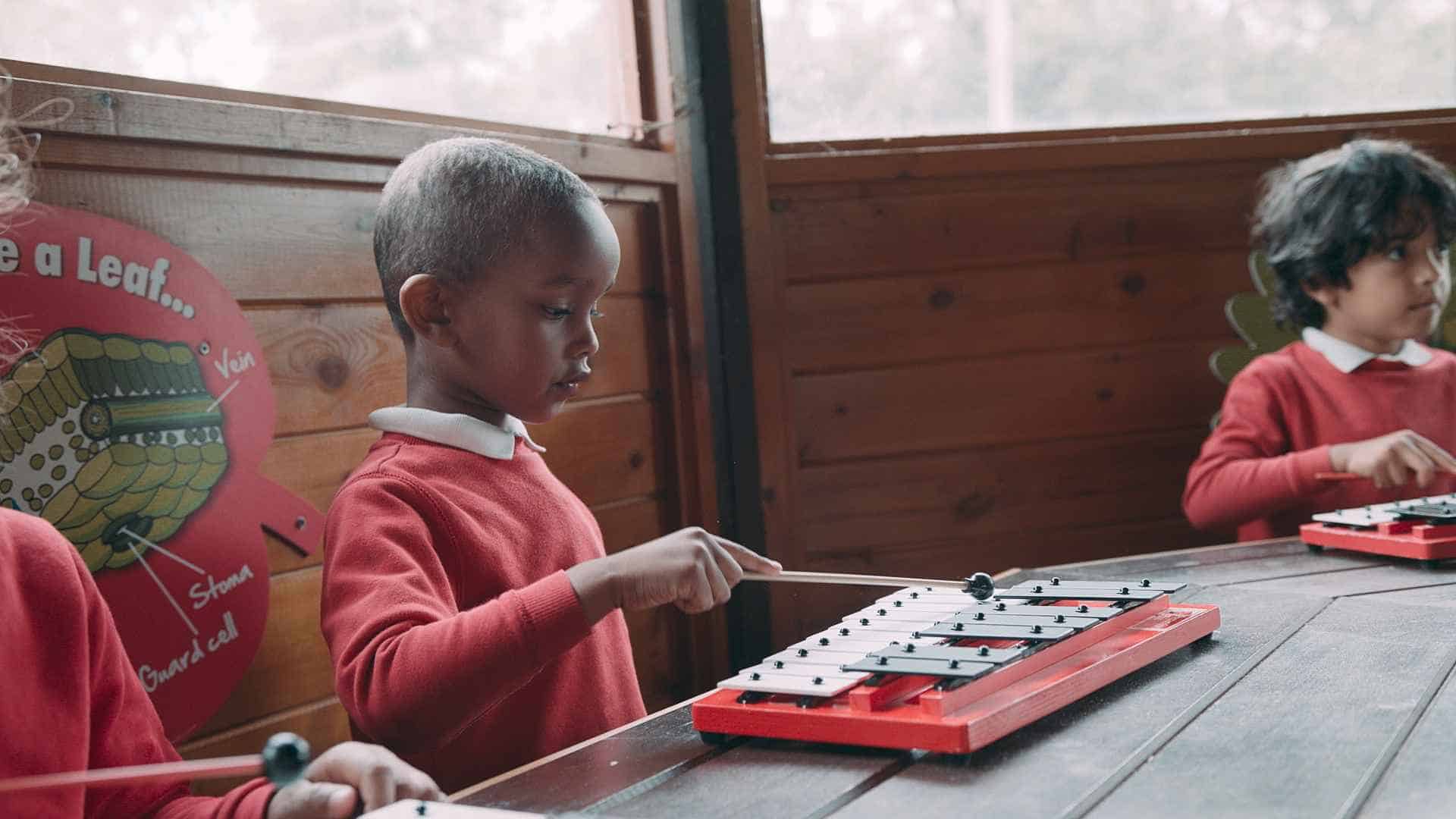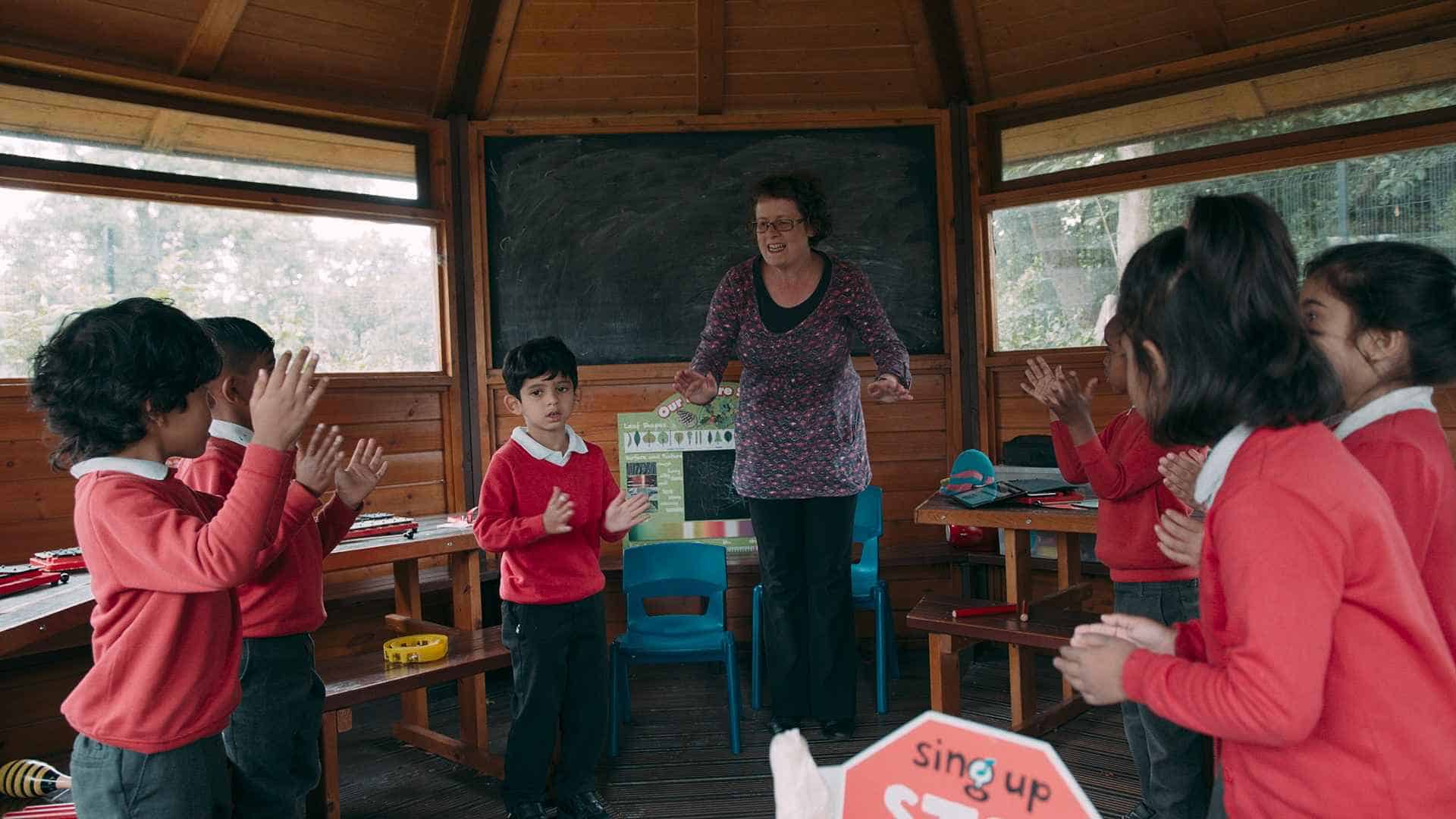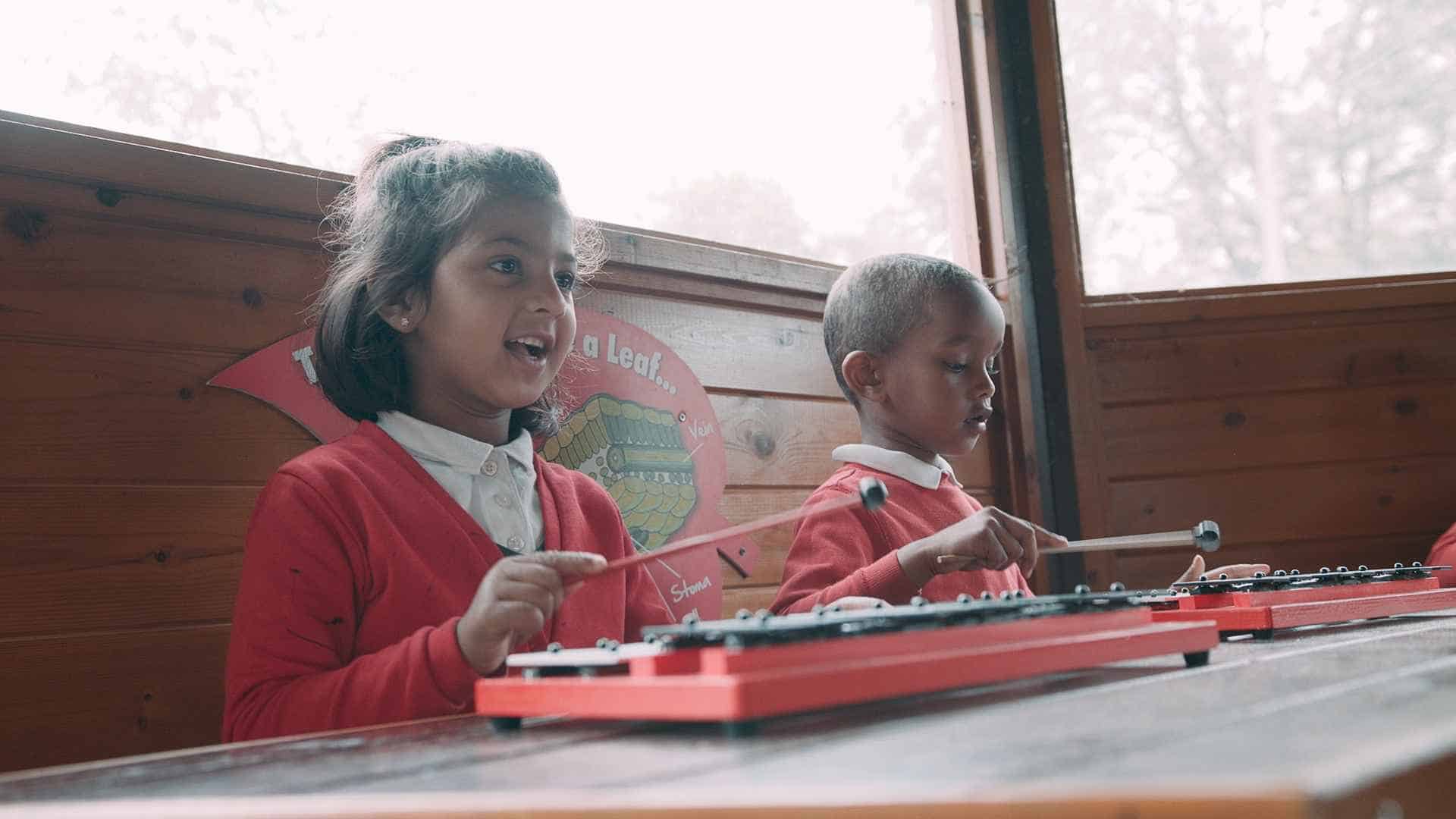Music
Welcome to our Music Blog! Take a look at the latest updates below…
On these pages you will find:
- Information about the music clubs
- Singing from our choir
- Performances from our drumming and recorder clubs
- Music and performances from visiting musicians
Choir
The choir is with Mrs Mounsey and meet in the small hall.
Listen to our wonderful KS2 Choir.
Keyboard Club
The Keyboard club meet on a Monday after school with Mrs Mounsey in the small hall.
It is for Y5 children who wish to learn to play the keyboard.
Drumming Club
Can you hear the improvised solos in the middle of the piece of music below?
Recorder Club
The recorder club is run by Mrs Mounsey.
This is for older children who can already play and want to develop the skill of reading music and playing the instrument further.
Can you hear the descant and treble recorders playing in the pieces below?
These wonderful recorder players are playing a piece of music by Mr.Beethoven.
Visiting Musician – Let’s Rock!
Visiting Musicians – ‘Start The Day The Halle Way!’
MUSIC POLICY
Position Statement
Clarendon School is situated in a deprived area of Bolton. Children enter school with well below average starting points and limited musical experiences. They make good progress throughout school to ensure that progress overall is at least good. Outcomes and quality teaching, alongside rigorous moderation ensures that children receive at least a good quality education. Good quality feedback, through monitoring, continuous professional development and observations have supported staff in achieving high standards for the children’s learning.
Introduction
Music is essentially a practical and creative subject which is enjoyed by all. From an early age children have a growing awareness of rhythm, pitch and sounds around them and these are developed on entry to school. It is a unique way of communicating that excites, inspires and motivates children. For a child, music can be a vital means of personal expression and it plays an important part in personal development.
The music curriculum is continually reviewed and updated to ensure that the children are supported and challenged to achieve their goals and aspirations.
Intent
Our school policy recognises the importance of aesthetic development, enjoyment and the acquisition of skills in the study and performance of music. It has always played an important part in the life of our school and our main aim is to continue this tradition by providing the correct environment and resources so that every child may participate fully and develop their musical abilities according to their skills and needs.
We provide opportunities for all children to undertake a balanced programme of performing, composing, listening and appraising activities, building on previous work and achievement. They develop the skills to appreciate a wide variety of musical forms and to begin to make judgements about the quality of music. Experiences should include different styles of music appropriate for different purposes, traditions and from different periods and cultures.
We believe that music can be a communal subject encouraging a real sense of shared emotion, togetherness and co-operation.
Aims
• Provide broad, balanced and challenging opportunities with a progressive approach to develop musical skills, knowledge and understanding.
• Develop a growing awareness of the inter-related dimensions of pitch, duration, tempo, timbre, texture, structure and use appropriate musical notations.
• Develop aesthetic sensitivity and creative ability in all pupils and to foster pupils’ understanding and enjoyment of music.
• Develop children’s understanding and appreciation of a wide range of musical genres, developing a sensitive response and extending their own interests.
• Develop skills and attitudes that can support learning in other subject areas that are needed for life and work, i.e. listening skills, the ability to concentrate, creativity, intuition, aesthetic, perseverance, self-confidence and sensitivity towards others.
Objectives
Children should be provided with the opportunity to: –
• Discuss and appraise music through experiencing live and recorded performances of professional musicians and peer groups.
• Improvise and compose as a class as well as in groups or individually.
• Listen and develop sensitive, analytical and critical response to their own and others’ music.
• Rehearse and perform for a variety of purposes and audiences, developing skills and improving vocal and instrumental techniques.
We are a Rights Respecting school and follow the United Nations Convention on the Rights of the Child (UNCRC). This convention is a universally agreed set of non-negotiable standards and obligations, built on varied legal systems and cultural traditions. These basic standards also known as human rights, set minimum entitlements and freedoms that are respected and put into effect by governments. The 42 articles on the rights of the child are founded on respect for the dignity and worth of every individual regardless of ethnicity, gender, language, religion, opinions, origins, wealth, ability or any other status, and therefore, apply to every human being everywhere.
Implementation
Early Years
In line with the Early Learning Goals, children are given the opportunity to sing, explore sounds, dance and move to music. They are given the opportunity to explore how sounds can be changed; to sing simple songs from memory; to play a range of percussion instruments and to match movements to music. Counting songs foster a child’s mathematical ability and songs from different cultures increase a child’s knowledge and understanding of the world.
Music contributes to the Expressive Art and Design element of the profile, however, links can also be made to Physical Development as the children develop their sense of movement and response to sounds. The range of experiences at Clarendon encourages children to make connections between one area of learning and another, and so extends their understanding. We provide a rich environment in which we encourage and value creativity.
Class Organisation
Music is taught as a whole class lesson. Children work as a class, in groups and sometimes individually on performing, listening, composing and appraising activities.
Lessons begin with the children warming up and attention focusing activities. Performing may be done as a class or in groups.
Time allocation
Key Stage 1 and Key Stage 2 classes have an allocation of alternate ½ term timetabled for discrete teaching. It is taught in blocked ‘ongoing’ weekly lessons.
Planning
Planning takes account of the music in the National Primary Curriculum 2014 and including the following key skills:
• Perform, listen to, review and evaluate music across a range of historical periods,genres,styles and traditions, including the works of the great composers and musicians
• Learn to sing and to use their voices
• Create and compose music on their own and with others
• Have the opportunity to learn a musical instrument
• Use technology appropriately
• Understand and explore how music is created, produced and communicated through the interrelated dimensions: pitch, duration, dynamics, tempo, timbre, texture and appropriate musical notations.
Music where possible will be linked with other topic areas.
Differentiation
Music is an inherently inclusive medium accessible to all, regardless of ability or language background and is one area of the curriculum where a child can really shine and have a great sense of achievement.
Nonetheless, we recognise that children differ in their needs and ability and we aim to provide appropriate learning experiences for all children by encouraging active participation in lessons by matching work to ability and developing children to their full potential.
We achieve this through a range of strategies:
• Setting tasks that are open-ended and can have a variety of responses
• Setting tasks of increasing difficulty, where not all children complete all tasks
• Responding to children’s diverse needs
• Overcoming potential barriers to learning and assessment for individuals and groups of children
• Providing a range of challenges with resources of different complexity depending on the ability of child.
• Grouping children by ability and setting different tasks for each group
Children experiencing difficulties can be given extra encouragement by working in a small group with the teacher or with a more musically able child.
Those children with a particular interest or aptitude in Music can be given the opportunity to extend their education in a variety of ways, for example, recorder groups, choir, and instrumental performances in assembly.
Impact
The children are assessed through their participation in musical activities by observation, discussion and questioning, listening to their responses and by examining work produced. In order to observe real attainment, it is necessary to make sure children work in ways in which they are able to reveal their abilities. The children’s progress is recorded on the Music pupil tracker record sheets.
Regular audio recordings are made throughout a musical unit encouraging children to assess and evaluate both their work and that of other children. This helps them to appreciate how they can improve their performance. This method of recording enables the teacher to make ongoing assessment to ensure good progress is made.
Termly assessment is made where particular reference is recorded of children who fall below or exceed the skills for that musical unit.
Inclusive Provision
Pupils listed on the Special Educational Needs register are provided with appropriate differentiation and challenge. Planned differentiation ensures all individual needs are met. For further information see the Special Needs.
Music clubs are open to all children. They enable children to explore different cultural experiences and ensembles as well as continuation of learning the recorder and djembe drum. The keyboard club introduces children to play this instrument. Disadvantaged and SEN children are encouraged to join and this is monitored throughout the year.
Links with other areas of the curriculum
As well as making its own distinctive contribution to the school curriculum, music contributes to the wider aims of primary education. Whilst teaching knowledge skills and understanding, children respond physically, intellectually and emotionally. In doing so their learning is enriched in all curriculum areas. It contributes to the development of science, English, information and communication technology, personal, social, health education and thinking skills. It provides a stimulus for expressive work in other art forms and discussion of feelings. Through a common goal of making music, children learn to work effectively with others and this has a vital role to play in building self-confidence.
The nature of music enables children to study and empathise with a range of cultural and social groups across the current and historical world.
English
The successful acquisition of reading and writing ability depends on a solid background in oral language skills. Thus, children can gain knowledge and confidence in oral language through music. Children can use songs to experiment with grammatical rules, rhyming patterns, repetitive language, and other stylist devices i.e. alliteration
Music provides many opportunities for speaking and listening, which can lead directly to a writing task. It is a way for children to remember stories and learn about the world around them. Using music as a stimulus can effect one’s emotions and make information easier to remember. Music also creates an environment that is conducive to learning. It can reduce stress, increase interest and set the stage for listening and learning.
Mathematics
Children can practise a range of mathematical concepts through music. In the early years, songs and chants can aid memory by helping children to remember number. It can provide a repetitive, fun stimulus to aid children’s mental maths and rapid recall, particularly their counting skills, number bonds, timetables and knowledge of the four operations.
Equal Opportunities
We are committed to providing a teaching environment conducive to learning. Each child is valued, respected and challenged irrespective of gender, ability, ethnicity, religion, social background, culture or disability.
Musical Experience
Children experience live music from professional musicians to provide enrichment to our own resources. The school also takes part in some of the events organised by the Greater Manchester Music Hub
• Annual plays in foundation and concerts in Key stage 2 involve all children in song, movement and instrumental performance.
• Throughout the school year the children take part in special assemblies e.g. Eid, Diwali, Christmas, class assemblies, annual leavers’ afternoon etc. including a range of choral, instrumental work as appropriate and to maximise the number of children involved.
• Year 6 present a musical production to the rest of the school and parents at the end of the Summer Term.
• The music clubs give a concert every spring term.
• The choir visits Mill View.
• Recorder tuition for Y3 pupils- djembe drumming tuition in Y4.
• Singing practice – Each key stage meets to learn songs for assembly and special occasions linked to P.S.H.E.
• Assemblies will include singing and a wide variety of entry/exit music.
• Guest musicians and orchestras/groups come to perform at school.
Extra-Curricular Activity
Extra-curricular opportunities are organised to enhance the music curriculum.
(i) Choir Clarendon Choir is open to Y3 child who enjoys singing irrespective of actual vocal range and control. The children are taught songs in unison and in parts and are given instruction on voice production and articulation. Although a high standard of performance is aimed for, enthusiasm and enjoyment are the key elements.Y4, Y5 and Y6 have an opportunity to become singing leaders.
(ii) Recorder Clubs Recorder club is open to any Y4 child who wishes to continue learning the skills of recorder playing. It gives children the opportunity to, when ready, play the treble and tenor recorder.Y5 and Y6 children have an opportunity to become recorder leaders.
(iii) Djembe Drumming Club The drumming club is open to any Y5 child who wishes to continue learning the skills of playing the djembe drum. Y6 have an opportunity to become drumming leaders.
(iv) Samba Band
We have a Samba Band Y2 children are welcome to join. It meets on a weekly basis in the summer term.
(v) Keyboard Club
Keyboard clubs take place in the summer term. There are two clubs, one for Y6 only and the other for Y4/Y5.
Resources
• We have a large music store containing a range of musical instruments, equipment and resources.
• We have a piano and electronic piano in the small hall available for use.
• Teachers have access to a variety of songs and music on the network shared across the school including ‘sing up’ songs and ‘out of the ark’ words on screen.
• The school has access to the Charanga website.
Monitoring and Evaluation
The quality of education in Music is monitored and evaluated by the Senior Leadership Team and the subject coordinator as part of the school’s agreed cycle of lesson observations. Areas of strength or areas for development may be discussed at staff meetings or with individual teachers.
This policy will be reviewed every 3 years as part of the school development plan cycle.





